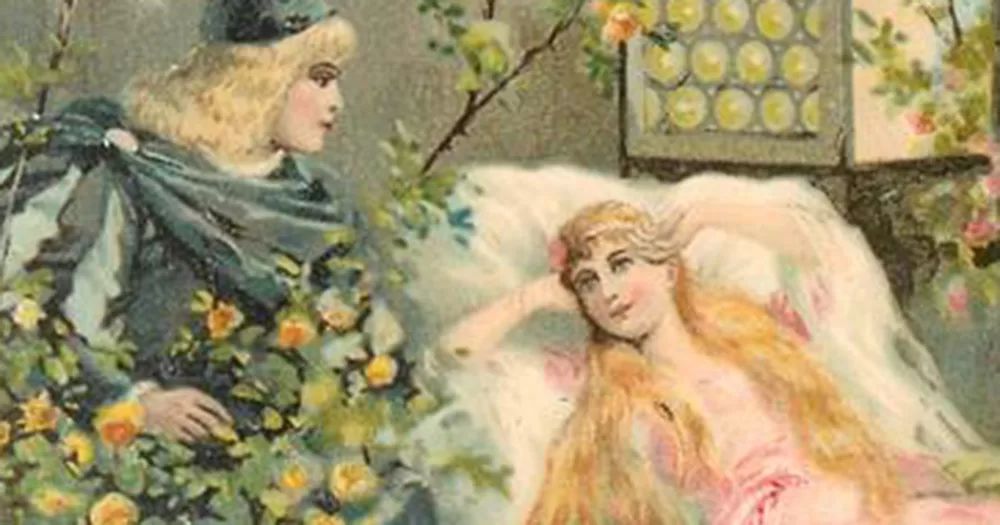“And they lived happily ever after…” Who doesn’t like to hear that sentence at the end of a good story? But have you ever wondered why only the prince gets the princess, or did you wish to end up with the princess yourself? Then this is just the read for you. Let’s take a closer look at why well-known fairy tales often don’t reflect LGBTQ+ experiences.
Generally, it is challenging to trace stories and all their variations back further than the 19th century because it was only then, in the Industrial Revolution, that “Folklorists” became a full academic discipline. This is mostly due to the fact that only with the invention of the printing press did people start to create written collections of folklore that, until then, had been passed on in oral tradition.
As this tradition was slowly being replaced by people preferring to read books, there was considerable effort to collect and catalogue the stories that were still being told to prevent them from dying out. From then on, for a long time, it was generally agreed among folklorists that not that many stories with LGBTQ+ themes existed.
Scholars assumed that because of the oral tradition of these stories and fairy tales, they didn’t feature any LGBTQ+ themes because those were simply taboo within society. A little more recently, it has been acknowledged that the process of collecting and cataloguing the tales also had its part to play.
Moreover why can’t there be any lgbtq+ fairytales in history, what’s that about? Why can’t I just draw two princesses, or two princes, being in love and living happily ever after. History is lame I wanna do a queer fairytale.
— kat (@papakatastrophe) March 23, 2022
Many stories, especially ancient myths but also more recent folklore from all over the world, commonly include stories about same-sex romance and attraction as well as divine intervention and transformations that result in a change of gender. Everywhere from Ancient Egypt over to the Celts, mythic traditions include stories that, from a modern viewpoint, can be interpreted as queer.
But over the span of many years, a small group of people edited a catalogue of the world’s folklore, using something called the ‘Aarne Thompson Uther Tale Type Index’, allowing them to separate folktales by structure, logging different variations of tales from all over the world. Stith Thompson, an American Scholar and Folklorist who played a part in inventing the index, went on to publish an accompanying six-volume Motif-Index of Folk-Literature.
Thompson’s work is still, to this day, used as an important basis for research, even though many scholars regard it as problematic and outdated. This is partly due to the fact that the author let his own morals influence the editing process and, on his own admission, “omitted many stories in the catalogue because they were ‘perverse’ or ‘unnatural’.” As such, he categorised ‘homosexuality’ and ‘lesbianism’ as ‘unnatural perversions’, a section that also includes bestiality and incest.
However, since then, there have been efforts to diversify the stories we know and love, and sometimes scholars manage to unearth one or two gems that have almost been lost to time that also feature queer themes. It is important to remember that storytelling has been an oral tradition for centuries before our favourite tales were ever written down and that there are many different versions of each and every folktale. So why not try and create your own version the next time?
so tempted to say fuck it and rewrite fairytales as modern day, lgbtq+ fairytales
— Moon ? (@spookysapphic_) October 16, 2021
© 2023 GCN (Gay Community News). All rights reserved.
Support GCN
GCN is a free, vital resource for Ireland’s LGBTQ+ community since 1988.
GCN is a trading name of National LGBT Federation CLG, a registered charity - Charity Number: 20034580.
GCN relies on the generous support of the community and allies to sustain the crucial work that we do. Producing GCN is costly, and, in an industry which has been hugely impacted by rising costs, we need your support to help sustain and grow this vital resource.
Supporting GCN for as little as €1.99 per month will help us continue our work as Ireland’s free, independent LGBTQ+ media.

comments. Please sign in to comment.